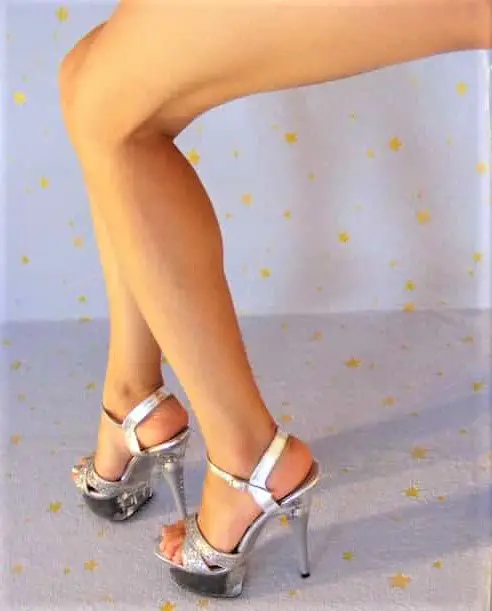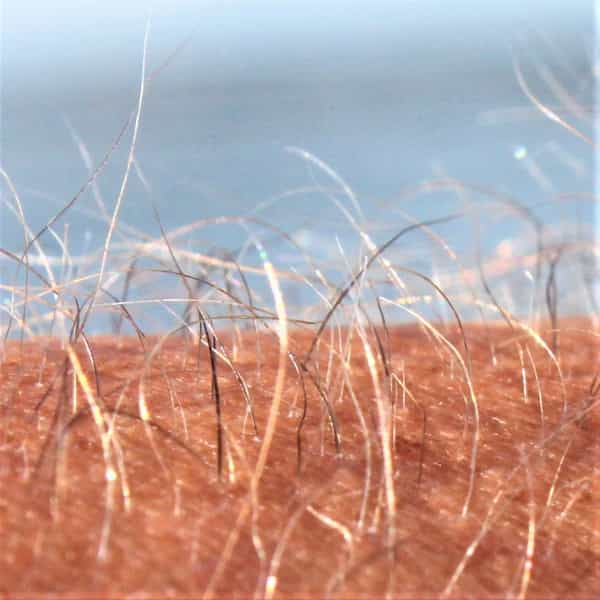Does shaving make hair thicker?
… And does cutting the hair make it grow faster?
This myth is well-founded and looked upon as an axiom in many parts of the world. When I was young I heard it from more or less everybody… If you shave, the beard will grow fuller and richer. The idea was somehow that the hair would compensate for being cut off, and the hair follicle would strengthen the new hair so that it can resist better. At least that’s how it was explained to me.
Anyway, it was common knowledge that shaving and cutting would create thicker and maybe darker hairs.
Our very different goals

Having more, richer, and stronger hair can be a good thing, or a bad thing… It depends. Because we have very different goals with hair growth. Typically we want less hair on our bodies, while on the head, we prefer more. Especially if you’re a woman, you normally want little or no body hair.
For a man, body hair could be of less importance. While, for example, the beard should be rich and full, which could be a problem if you’re young or just don’t have a lot of facial hair.
So, even if the question “Does shaving make hair thicker?” could seem of little importance, it’s actually of great concern to many. And the healthcare- and make-up industry takes advantage of this, with thousands of products for either making your beard fuller, your curls richer, or making your legs smoother.
The truth of the matter
Your hair grows as it grows independently if you cut or don’t cut. When you shave, the hair is cut straight off, and the blade leaves a square tip instead of the smooth, soft tip of natural hair. That can sometimes make the hairs feel rougher the first days after a shave or a cut, but it’s really an illusion. Mechanical cutting doesn’t change the way the hair is produced in the follicle in any way.
The clinical aspect of hair growth.

The hair follicle produces the hair over time, it reaches its full length, and then it falls off. After that, the follicle rests for some time before it starts with a new hair. The complete cycle is, by scientists, divided into three faces, the anagen, the catagen, and the telogen face.
- Anagen phase – This is the growth face. The hair is growing until it reaches its full length. That can take many years if we’re talking about scalp hair. Hair on your head grows one or two cm per month. The growth rate varies with age, sex, genetic factors, and to some extent, with external components, such as temperature, sunlight, nutrition, and general well-being.
- Catagen phase – This is when the hair is released from the follicle, and pushed out. The dermal papilla diminishes in size and detaches from the hair, which simply falls off.
- Telogen phase – This is the resting face. It lasts for a few months before the follicle wakes up again and restarts the cycle.
 Is it at all possible to affect hair growth?
Is it at all possible to affect hair growth?
Well, of course, it is. Everything in our bodies is connected to everything else, and hair is no exception. If you’re healthy, happy, and physically strong, your hair will be fuller and richer. If you eat well, don’t take drugs, or drink too much alcohol, you will definitely have more beautiful hair, just as you would be more beautiful all together. And we’ve already concluded that sunlight, temperature, vitamins, minerals, and even products sold as a hair-growing enhancement by the makeup industry can affect hair growth.
To this, we would have to add medical disorders, secondary effects from treatments, alopecia, and common male baldness.
It’s just shaving or cutting that doesn’t make hair grow faster… or fuller, or stronger. It doesn’t affect the life cycle of the follicle at all.
It’s still a good idea to get a haircut every few months, though. The professional, caring hand of a hair stylist has many benefits. It levels the tips of the hair on your head, and the products used can in some cases be good for you… And you look better coming out from the hair salon, and that’s a major issue.
But, still, the hair doesn’t grow more or less, fuller or thinner.
 Does shaving make hair thicker? Nope, it doesn’t
Does shaving make hair thicker? Nope, it doesn’t
But it feels that way.
The anagen face – the growth face – is divided into 6 sub-faces. And it’s not until the fourth of these faces that the melanin production is fully activated. At the beginning, not only is the hair thinner but it’s also not colored.
So, a natural body hair of, let’s say, 5 millimeters is very soft and almost transparent because it’s actually the tip of the new hair. If, on the other hand, you cut it straight off and let it grow out 5 millimeters from the cutting point, then that would be the middle part of the hair, with a full diameter, and full color. And the feeling, when you caress your leg, is very different.
Waxing vs shaving
Again… Waxing or shaving has no effect on the long-term growth or quality of the new body hair. The follicles on your skin will repeat their growth cycle in exactly the same manner if you wax or shave… Or you don’t do either.

Waxing pulls out the whole hair, root and all. The follicle has to start all over again, and waxing, therefore, leaves the skin hairless for a much longer time. Shaving just cuts the hair, and the growth continues where it was cut off. Shaving causes the new hair to be wider and colored, just as explained before.
Waxing lasts longer while shaving is easier.
Both methods can cause problems due to the invasiveness of the skin. The process of cutting, scraping, and pouring hot wax should be done with caution.
There is a specific hazard for women, especially those with curly hair… Frequent shaving can cause ingrown hair. To avoid this, always cut in the direction the hair grows, never against the grain. And shave after or while showering, never on dry skin.
There are many other ways to remove unwanted body hair, some are claimed to do so permanently. Any of these methods should be used acknowledging the risks, and always at a certified clinic with a good reputation. Check reviews, and references, and ask around.
No, nor shaving, waxing, cutting, or anything else you do with the grown-out hair, has any bearing on the long-term health, width, or length of future hairs.

sources
